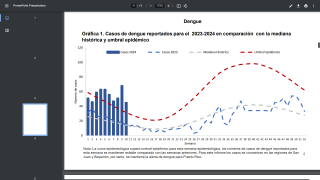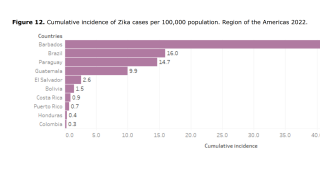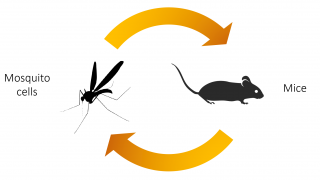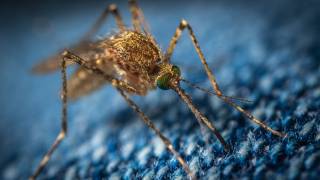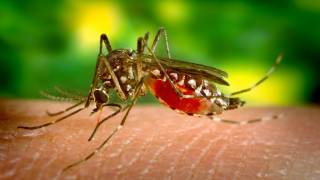DNA May Dictate Zika Complications in Infants

Brain calcification, skeletal alterations, and microcephaly are just a few examples of how the Zika virus can infect babies during pregnancy.
However, these serious, life-long problems are observed in only 6%-12% of Zika cases, says new research.
Now, scientists suspect other factors besides viral infection are associated with the development of congenital Zika syndrome.
These scientists were able to study pairs of twins exposed to Zika infection during pregnancy, in which at least one of the babies was born with Congenital Zika syndrome (CZS).
A new study published in the journal Nature Communications offers strong evidence that the higher susceptibility of some babies to the Zika virus may have a genetic origin.
"In the laboratory, we found some 60 genes with differentiated expression in the neural progenitor cells of the affected babies," said Mayana Zatz, a professor at the University of São Paulo's Bioscience Institute (IB-USP) and a principal investigator for the research project.
These researchers evaluated data for 91 babies born to infected mothers, including two pairs of monozygotic twins and seven pairs of dizygotic twins.
"From the start, we were struck by the fact that the virus replicated much faster in the neural progenitor cells (NPCs) from the affected babies," Zatz said.
"In addition, these cells proliferated less and died more than cells from unaffected babies. We appear to have succeeded in reproducing in vitro what happens in vivo."
Next, in collaboration with a team of researchers led by Sergio Verjovski-Almeida at IQ-USP, the scientists used sequencing techniques to analyze all the messenger RNA molecules expressed by the cultured NPCs, with the aim of discovering which genes were more active or less active in each case.
Differences were observed in two cell signaling pathways of key significance for brain development during the embryonic period - one mediated by the protein mTOR and the other by Wnt.
"These pathways regulate the proliferation and migration of central nervous system cells, among other things," Zatz said.
"The expression of several genes linked to these pathways was reduced in the NPCs from affected babies. One was 12.6 times less expressed in affected cells than the same gene in cells from the unaffected twin."
The results were similar for all three pairs of twins studied, reinforcing the hypothesis that congenital Zika syndrome is not a random event but is favored by genetic factors.
In this study, the researchers performed whole exome sequencing (WES) to look for disease-causing DNA variants in the genome's exons, the pieces of genes that code for proteins.
"We wanted to see if any genetic variants were present only in the affected babies, but we found none.”
“This rules out the hypothesis of a Mendelian inheritance [linked to a single gene] and suggests that we're dealing with a complex inheritance [a combination of differentially expressed genes], like susceptibility to diabetes, for example," Zatz said.
According to Zatz, in time the new discoveries could enable the identification of parents at risk of having children with this more vulnerable genetic profile.
"If and when a vaccine against Zika is developed, these parents could be prioritized in immunization strategies," she said.
Most of the investigation was conducted at the Human Genome & Stem Cell Research Centre (HUG-CELL). HUG-CELL is hosted by the University of São Paulo (USP).
Other participants included scientists affiliated with the National Energy & Materials Research Centre (CNPEM), the Federal University of São Paulo (UNIFESP), Butantan Institute, the Albert Einstein Jewish Hospital (HIAE) in São Paulo, USP's Chemistry Institute, and the Federal Universities of Paraíba (UFPB), Rio Grande do Norte (UFRN) and Pernambuco (UFPE). Data collection was performed in 2016, mainly in states of the Northeast affected by the Zika epidemic in the previous year.
These researchers did not disclose any conflicts of interest.
For more information: http://www.fapesp.br/en.
Our Trust Standards: Medical Advisory Committee


